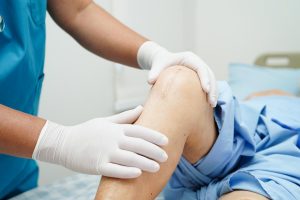When going on vacation, there’s a lot to remember, but it’s a good idea if you add one more item to the to-do list.
Baylor College of Medicine in Houston suggests creating a family travel medical checklist, to be sure that you and your loved ones stay healthy and safe while you’re away.
“Traveling can expose families to different environments, climates and potential health risks. A medical travel checklist makes families take a step back to ensure the necessary precautions to protect their health and safety,” said Dr. Mike Ren, an assistant professor of family and community medicine at Baylor.
“A list should include essential items such as medications, first aid supplies and personal protective equipment,” he said in a college news release.
Talk to your primary care provider before you leave to get advice about vaccinations and medications you may need, depending on where in the world you’re traveling to.
Make sure any family members on medications have enough to supply them for all the days you’re gone. Check to see if you may need special documentation to bring your medications across borders.
If you’ll be traveling in high heat, such as in extended car rides, determine what to do if some items may lose their potency. This might include insulin, some antibiotics, inhalers, eye drops, liquid medications and ointments.
“Over-the-counter medications like pain relievers, allergy medications and certain vitamin supplements can also be compromised in high heat,” Ren said. “Check the packaging for specific storage recommendations and ask your pharmacist or doctors about best practices for handling medications.”
You may need to take additional precautions if you’re taking an extended vacation.
Family members with chronic conditions should meet with their doctor to determine if prolonged time away from home is ideal.
If you can’t secure enough medication for the entirety of the stay, be sure there is access to local pharmacies, doctors, telehealth or mailing options for medications at your destination.
If you’re traveling across time zones, additional planning for timing of medication is important. Ren encourages patients to work with their health care providers to adjust medication timing and minimize disruptions.
Find out about any requirements from airlines and other transportation providers so you can properly pack or carry essential medical devices such as insulin pumps, glucose meters, nebulizers, blood pressure machines and mobility aids like canes or walkers.
“Common prohibited items on airlines include oxygen tanks, large liquid oxygen systems, compressed gas cylinders and certain radioactive materials,” Ren said. “If these are required, you may need to plan your transportation methods around these restrictions or ensure they are available at your destination.”
You may also need to properly pack and provide medical documentation for certain other medical supplies, such as lancets, wound care materials and catheters.
Postpone your travel plans if you are experiencing illness, especially one that is contagious, or if someone in your party has undergone a recent major surgery or has an uncontrolled chronic disease or conditions that may require immediate medical intervention.
Pregnant women should avoid flying in their third trimester. They should also speak with their doctor about travel plans, especially if they are in a high-risk pregnancy, Ren said.
Avoid unnecessary travel, especially by air, in the first few weeks of a baby’s life, Ren added. Most pediatricians advise waiting for six months so babies’ immune systems can develop.
Seniors who are traveling should consider their health, physical capabilities, personal preferences and accessibility when deciding travel plans.
“A medical travel checklist gives families peace of mind. They can feel confident that they have taken all necessary precautions to address potential medical issues during their trip. It reduces anxiety and allows them to focus on enjoying their travel experience,” Ren said.
More information
The U.S. Centers for Disease Control and Prevention has more on safe and healthy travel.
SOURCE: Baylor College of Medicine, news release, May 18, 2023
Copyright © 2024 HealthDay. All rights reserved.















-300x169.jpg)









